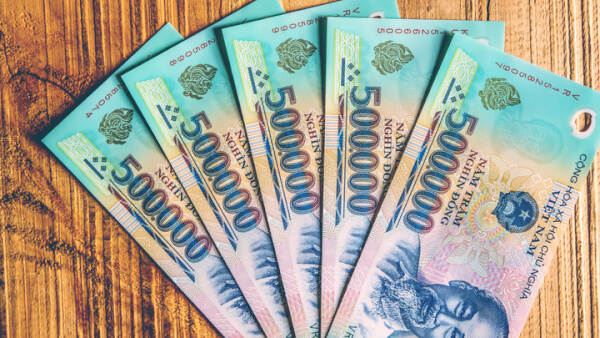Money in Vietnam: Banks, ATMs, cards & currency exchange
The first six months of 2016 saw over 4.7 million foreign visitors arriving in Vietnam - an impressive 21% increase on the previous year. If you’re planning a...

Vietnam is a beautifully tropical country filled with some of the warmest and friendliest people you’ll ever meet. From the chaotic streets of Hanoi to the tranquil rice fields of Sapa, it’s a country well worth traveling extensively. However, before you go, there are some steps you should take to make sure you’ll stay healthy enough to explore every corner of Vietnam. Read on to learn about the vaccinations you should consider before visiting.
Immunizations, shots and vaccinations are all different terms to describe the same basic process. They’re all used to describe substances that are introduced to your body, usually via an injections, but sometimes orally, in order to encourage your body to start producing antibodies that will give you immunity against a disease.
Travelling exposes you to diseases that may not exist in your home country, and getting vaccinated for them before you go to areas where they’re common can help prevent you from getting sick. For example, in the United States, malaria is almost nonexistent. But in many more tropical parts of the world, it's a common illness that can make you extremely sick. Luckily, there’s a vaccine that will protect you from contracting it, should you travel from the US to a part of the world where malaria exists. Almost every country has recommended vaccinations that travelers should get, and some even have required shots that you’ll have to show proof of before being allowed into the country.
In Vietnam, there’s currently an active outbreak of Dengue fever, an infection spread by mosquitoes. Currently there’s no vaccine for Dengue fever, so you’ll want to protect yourself with other measures instead. Some steps you can take are to stay away from rural areas where mosquito activity is high, use mosquito netting on your windows and over your bed at night, and use bug spray on your skin and clothing to prevent bites.
Zika virus is also a risk in Vietnam, though less so than in some other parts of the world. For this reason, it's not recommended that pregnant women travel to Vietnam, and all travelers should take steps to avoid mosquito bites while they’re in the country.
Vietnam is also seeing notable rabies activity. Rabies is a preventable virus spread by bites from mammals, usually rodents, bats, cats and dogs. Preventative rabies vaccines are available, but if you're bitten by an animal suspected of being infected, you can receive the vaccines retroactively, as well.
Japanese encephalitis is on the rise in Vietnam, particularly in warmer, rural areas where mosquitoes are most common, but it can be prevented with a vaccine.
Some vaccinations need a certain amount of time to become fully effective, so it’s recommended that you consult with a doctor, nurse practitioner or travel clinic 6-8 weeks before your trip. They’ll help you set a schedule based on what vaccines you already have, which ones you need to get, and how long they take to become fully effective.
Vietnam only requires a yellow fever vaccine if a traveler is coming from a country with risk of yellow fever transmission. No other vaccines are required to enter Vietnam. However, there are a number of vaccines that are highly recommended for some or all travelers. Ultimately, you should speak to your doctor to find out exactly what vaccines are recommended for your lifestyle and travel plans. Only a medical professional will be able to make the final, most comprehensive call about what shots you need.
| Vaccine / shot | Required for Americans, British or Australians? | Recommended for whom? |
|---|---|---|
| Routine vaccines | No | All travelers |
| Hepatitis A | No | Most travelers |
| Hepatitis B | No | Those who may be exposed to bodily fluids |
| Japanese Encephalitis | No | Long-term travelers who are staying for more than a month. Travelers who are visiting rural areas of Vietnam |
| Malaria | No | Few travelers. Anti-malarial pills are generally recommended instead. |
| Rabies | No | Travelers who plan on a lot of outdoor activities where they may come into contact with animals. Long-term travelers. Children. |
| Typhoid | No | Most travelers |
| Yellow Fever | Sometimes | Travelers who are coming from or going to countries that have risk of yellow fever transmission (Parts of Africa and South America) |
Most of Vietnam stays temperate year-round, so there’s no particular time that's better than others to visit with lower risk of contracting an illness. There’s a slightly lower incidence of mosquito-transmitted diseases during the winter months, from November to March. However, if you plan on visiting rural areas of the country (and you should, because they’re beautiful), mosquitoes are always common and you should always take steps to protect yourself against their bites and the diseases they transmit.
If you have a medical emergency in Vietnam, use country code +84 and the following numbers to call for emergency assistance:
You can also directly call a hospital, as most ambulance services in Vietnam are run by the hospitals and not a separate agency. English speaking hospitals in some of the larger cities in Vietnam are:
International SOS
Address: 51 Xuan Dieu
Tel: (84-4) 3934 0666
Vietnam International Hospital
Address: Phuong Mai Road, Dong Da, Hanoi
Tel: (84-4) 3574 0740
Danang Family Medical Practice
Address: 50-52 Nguyen Van Linh, Nam Duong Ward, Hai Chau Dist
Tel: (84-511) 358 2699
Email: danang@vietnammedicalpractice.com
International SOS
Address: 167 A Nam Ky, Khoi Nghia, Dist 3
Tel: (84-8) 3829 8424 – 3829 8520
Columbia Asia Saigon
Address: 8 Alexandre de Rhodes, Dist 1
Tel: (84-8) 3823 8888
Now that you know how to protect yourself and stay healthy in Vietnam, the country is just waiting for you to explore. Safe travels!
*Please see terms of use and product availability for your region or visit Wise fees and pricing for the most up to date pricing and fee information.
This publication is provided for general information purposes and does not constitute legal, tax or other professional advice from Wise Payments Limited or its subsidiaries and its affiliates, and it is not intended as a substitute for obtaining advice from a financial advisor or any other professional.
We make no representations, warranties or guarantees, whether expressed or implied, that the content in the publication is accurate, complete or up to date.

The first six months of 2016 saw over 4.7 million foreign visitors arriving in Vietnam - an impressive 21% increase on the previous year. If you’re planning a...

While the U.S. Dollar is widely accepted in Vietnam, it’s often better to pay in the local currency - the Vietnamese Dong. Shops, restaurants, taxi drivers...